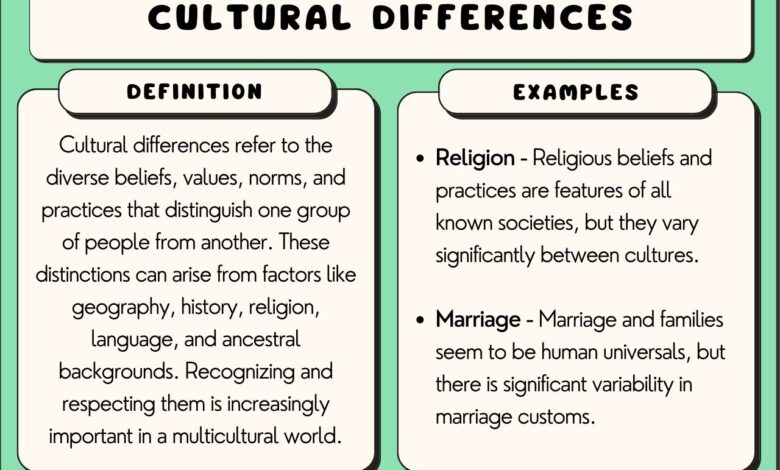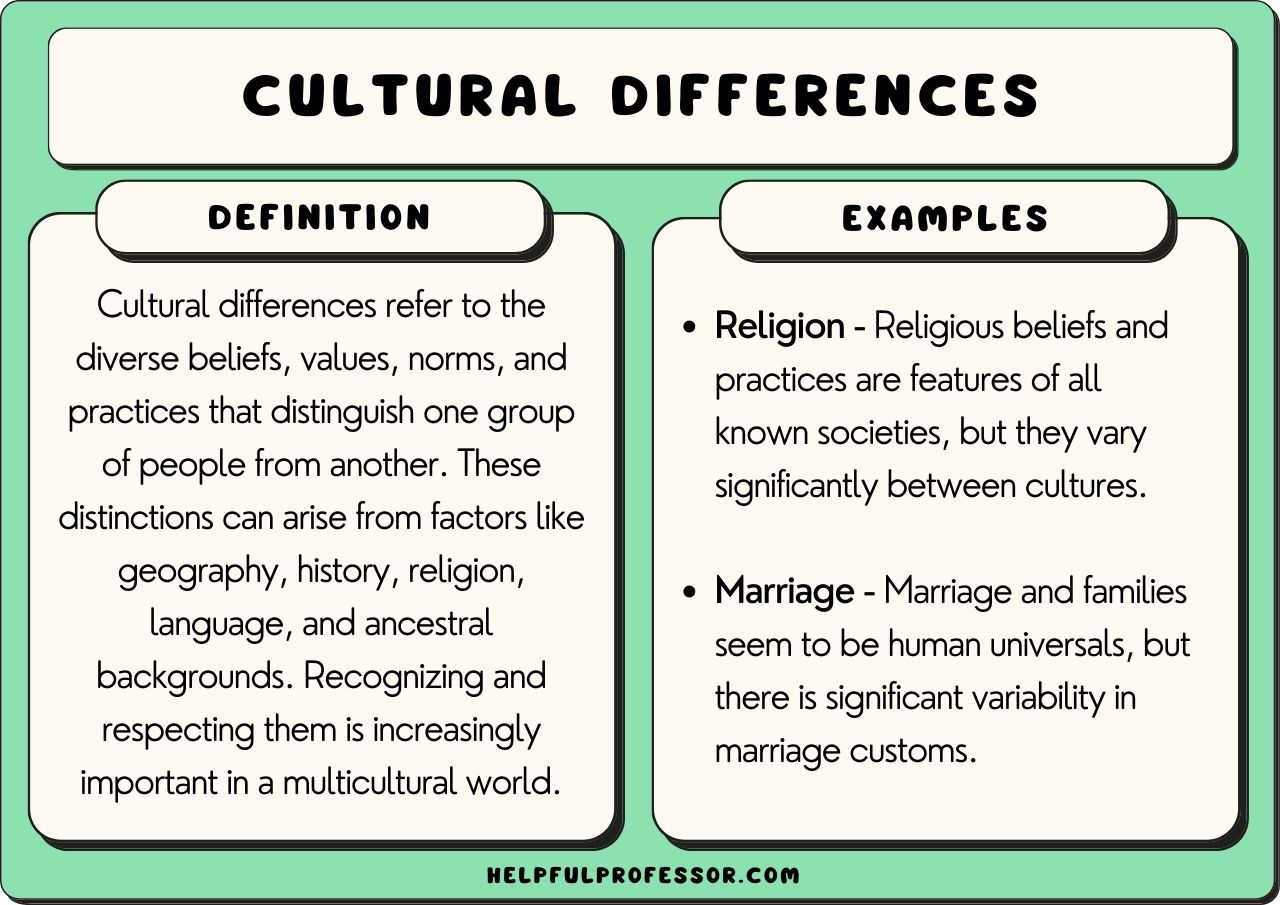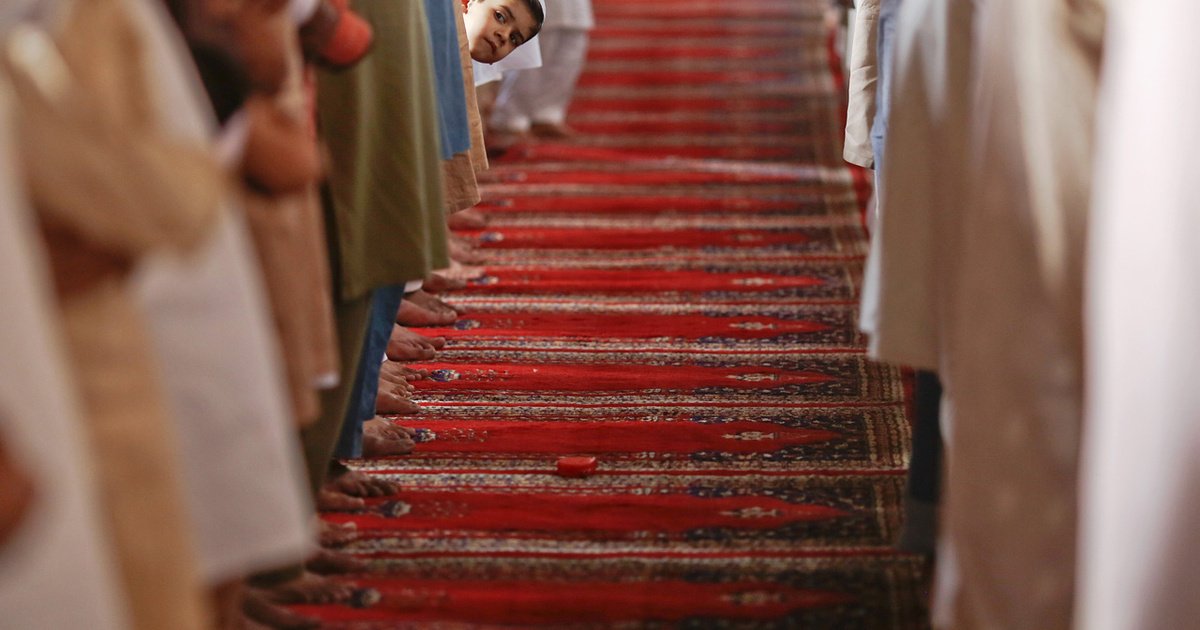Understanding Cultural Differences When Talking to Gulf Girls


Importance of Cultural Awareness
Benefits of understanding cultural differences when communicating with Gulf girls
In interacting with Gulf girls, having cultural awareness is crucial in fostering effective communication. By understanding the cultural nuances and customs unique to the Gulf region, individuals can show respect and sensitivity in their interactions. This, in turn, can help build trust and solidify relationships with Gulf girls. Additionally, being aware of cultural differences enables individuals to navigate conversations more smoothly and to avoid inadvertently causing offense. When communicating with Gulf girls, recognizing and respecting their traditions and values can lead to deeper connections and more meaningful exchanges.
Challenges that may arise from cultural misunderstandings
However, without cultural awareness, misunderstandings and misinterpretations may arise, leading to communication barriers and strained relationships. Lack of familiarity with Gulf customs and etiquette can result in unintentional offenses or insensitive remarks, potentially causing tension and conflict in interactions. Overcoming these challenges requires open-mindedness and a willingness to learn and adapt to the cultural norms of the Gulf region. By proactively addressing and understanding cultural differences, individuals can mitigate misunderstandings and cultivate more harmonious relationships with Gulf girls.

Communication Styles in Gulf Cultures
Verbal and non-verbal communication cues to consider
In the context of interacting with Gulf girls, **understanding cultural awareness** plays a vital role in facilitating effective communication. Through awareness of the Gulf region’s unique cultural nuances and customs, individuals can demonstrate respect and sensitivity in their interactions. This fosters the development of trust and the strengthening of relationships. Moreover, being cognizant of cultural disparities aids in navigating conversations more seamlessly and avoiding unintentional offense. Recognizing and respecting the traditions and values of Gulf girls contributes to fostering deeper connections and more meaningful exchanges.
The role of hierarchy and respect in Gulf communication
Conversely, a lack of cultural awareness could give rise to misunderstandings and misinterpretations, potentially resulting in communication barriers and strained relationships. Insufficient familiarity with Gulf customs and etiquette may lead to inadvertent offenses or insensitive comments, causing tension and conflict in interactions. Overcoming these challenges requires an open-minded approach and an eagerness to learn and adapt to Gulf cultural norms. By proactively acknowledging and comprehending cultural discrepancies, individuals can alleviate misunderstandings and cultivate more harmonious relationships with Gulf girls.

Dress Code and Etiquette
Understanding traditional dress codes and their significance
When interacting with Gulf girls, **respecting and understanding traditional dress codes** is integral to showing cultural sensitivity. The attire in Gulf cultures often carries deep symbolic meaning and significance, reflecting values, beliefs, and social norms. Being aware of these dress codes demonstrates a willingness to embrace and honor the traditions of the region. By dressing appropriately and respectfully, individuals convey a sense of respect and consideration towards Gulf girls, fostering positive interactions and building rapport.
Proper etiquette when addressing Gulf girls
Observing proper etiquette when engaging with Gulf girls is crucial for establishing respectful communication. **Maintaining a polite and formal demeanor** is highly valued in Gulf cultures, emphasizing the importance of showing deference and respect, especially towards elders or those in positions of authority. Using appropriate titles and greetings, such as “Mr.” or “Mrs.,” along with respectful gestures like avoiding prolonged eye contact or physical contact, can help to convey a sense of politeness and professionalism. Adhering to these etiquette norms showcases a genuine interest in understanding and honoring Gulf traditions, contributing to a harmonious and respectful exchange.

Gender Roles and Expectations
Cultural norms regarding gender roles in Gulf societies
In Gulf societies, traditional gender roles play a significant role in shaping social dynamics. **Expectations around gender roles** are deeply rooted in cultural norms and influence various aspects of daily life. Men are often expected to be the primary providers, while women are typically responsible for managing the household and family affairs. These roles are reinforced through societal expectations and are regarded as integral to maintaining harmony and order within the community.
Respecting traditional gender expectations when interacting with Gulf girls
When engaging with Gulf girls, it is essential to **respect the traditional gender expectations** prevalent in Gulf societies. This involves acknowledging and adhering to the roles and responsibilities that are typically assigned based on gender. Showing respect for these expectations demonstrates an understanding and appreciation of the cultural values that underpin Gulf societies. By recognizing and respecting traditional gender roles, individuals can establish rapport and foster positive relationships with Gulf girls.

Religion and Customs
The influence of Islam on daily life and social interactions
In Gulf societies, the influence of Islam on daily life and social interactions is profound. **Religious practices** guide various aspects of life, dictating behavior, values, and social norms. Islam shapes individuals’ conduct in their personal and public lives, emphasizing virtues such as humility, kindness, and respect. Social interactions are often governed by Islamic teachings, fostering a sense of communal harmony and unity among individuals. The principles of Islam serve as a moral compass, guiding individuals in their interactions with others and in their daily endeavors.
Respecting religious practices and customs when engaging with Gulf girls
When interacting with Gulf girls, it is crucial to **respect the religious practices and customs** prevalent in the region. This involves being mindful of Islamic guidelines regarding modesty, etiquette, and gender interactions. Respecting religious customs demonstrates sensitivity and understanding towards the cultural and religious values that are integral to Gulf societies. By honoring these practices, individuals can build trust and rapport with Gulf girls, fostering meaningful and respectful relationships based on mutual respect and cultural awareness.

Family and Social Structures
The importance of family in Gulf cultures
In Gulf societies, family holds a central role in individuals’ lives. **Family ties** are strong and play a crucial role in shaping social interactions and personal identity. The concept of family extends beyond the nuclear unit to include extended relatives, who provide support and guidance in various aspects of life. Family gatherings and traditions are significant occasions where bonds are strengthened, and values are passed down through generations. Respect for elders and care for the younger members are key values that are emphasized within Gulf families, creating a sense of unity and belonging.
Navigating social hierarchies and relationships when communicating with Gulf girls
When engaging with Gulf girls, understanding the **social hierarchies** and relationships within the society is essential. Respect for elders, authority figures, and traditional roles is important in fostering positive interactions. Acknowledging social norms and hierarchies demonstrates cultural awareness and sensitivity towards the dynamics at play. Building relationships with Gulf girls involves navigating these structures with respect and tact, recognizing the importance of status and social connections in the community. Effective communication is based on understanding and adhering to the social conventions that underpin Gulf cultures.

Work and Education Dynamics
Differences in work culture and educational systems in Gulf countries
In Gulf societies, **work culture** and **educational systems** are deeply intertwined with social norms and values. The emphasis on respect, hierarchy, and traditional roles extends to professional environments and educational settings. Workplaces often reflect a sense of hierarchy and respect for authority figures, with professional interactions being influenced by these dynamics. Similarly, educational systems prioritize discipline, respect for educators, and academic achievements as key indicators of success. The blending of tradition and modernity shapes the work and education dynamics in Gulf countries, highlighting the importance of cultural considerations in these spheres.
Respecting professional boundaries and academic achievements when engaging with Gulf girls
When interacting with Gulf girls in professional or educational settings, respecting **professional boundaries** and acknowledging **academic achievements** are essential. Recognizing the value placed on professionalism, expertise, and educational qualifications within Gulf cultures is crucial for fostering meaningful connections. Upholding professional decorum and showing appreciation for academic accomplishments demonstrates respect for the individual’s expertise and dedication. By acknowledging these aspects, interactions with Gulf girls can be conducted in a manner that aligns with the cultural values and expectations prevalent in the society.

Work and Education Dynamics
Differences in work culture and educational systems in Gulf countries
In Gulf societies, work culture and educational systems are deeply intertwined with social norms and values. The emphasis on respect, hierarchy, and traditional roles extends to professional environments and educational settings. Workplaces often reflect a sense of hierarchy and respect for authority figures, with professional interactions being influenced by these dynamics. Similarly, educational systems prioritize discipline, respect for educators, and academic achievements as key indicators of success. The blending of tradition and modernity shapes the work and education dynamics in Gulf countries, highlighting the importance of cultural considerations in these spheres.
Respecting professional boundaries and academic achievements when engaging with Gulf girls
When interacting with Gulf girls in professional or educational settings, respecting professional boundaries and acknowledging academic achievements are essential. Recognizing the value placed on professionalism, expertise, and educational qualifications within Gulf cultures is crucial for fostering meaningful connections. Upholding professional decorum and showing appreciation for academic accomplishments demonstrates respect for the individual’s expertise and dedication. By acknowledging these aspects, interactions with Gulf girls can be conducted in a manner that aligns with the cultural values and expectations prevalent in the society.
Dating and Relationships
Understanding cultural norms and expectations in Gulf dating culture
Respecting boundaries and traditions in relationships with Gulf girls

Work and Education Dynamics
Differences in work culture and educational systems in Gulf countries
In Gulf societies, work culture and educational systems are deeply intertwined with social norms and values. The emphasis on respect, hierarchy, and traditional roles extends to professional environments and educational settings. Workplaces often reflect a sense of hierarchy and respect for authority figures, with professional interactions being influenced by these dynamics. Similarly, educational systems prioritize discipline, respect for educators, and academic achievements as key indicators of success. The blending of tradition and modernity shapes the work and education dynamics in Gulf countries, highlighting the importance of cultural considerations in these spheres.
Respecting professional boundaries and academic achievements when engaging with Gulf girls
When interacting with Gulf girls in professional or educational settings, it is essential to respect professional boundaries and acknowledge academic achievements. Recognizing the value placed on professionalism, expertise, and educational qualifications within Gulf cultures is crucial for fostering meaningful connections. Upholding professional decorum and showing appreciation for academic accomplishments demonstrates respect for the individual’s expertise and dedication. By acknowledging these aspects, interactions with Gulf girls can be conducted in a manner that aligns with the cultural values and expectations prevalent in the society.




